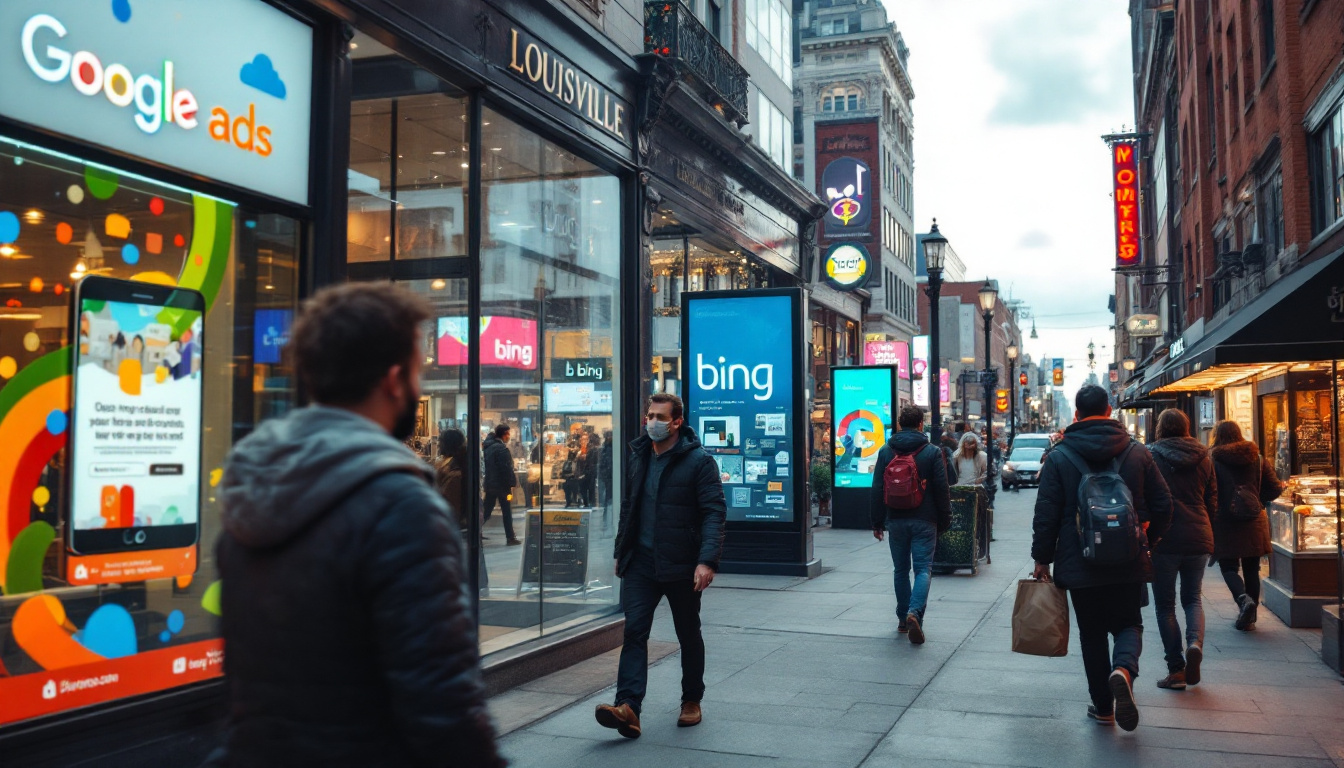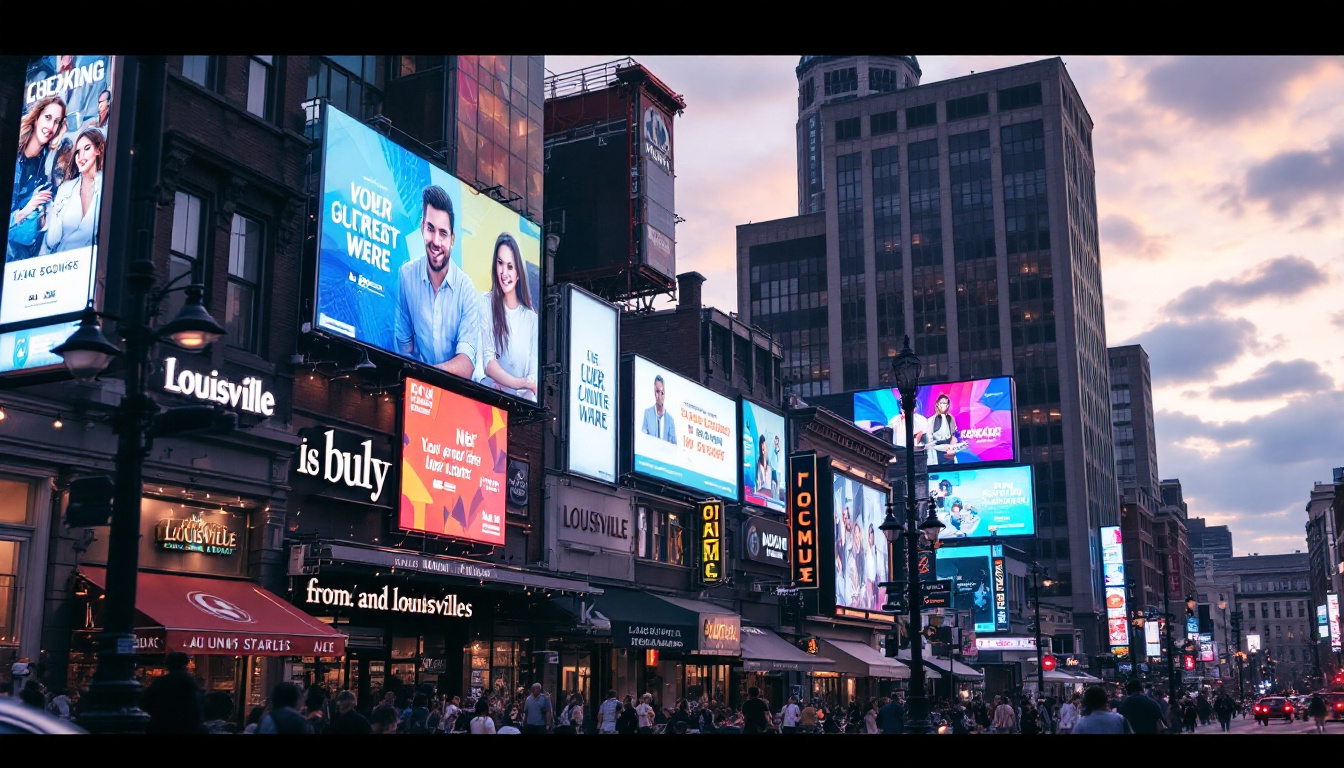Top PPC FAQs Answered for Louisville, KY Businesses

PPC (Pay-Per-Click) advertising has become a vital part of the digital marketing landscape, especially for local businesses in Louisville, KY. As businesses strive to capture the attention of their target audiences, understanding the nuances of PPC can be beneficial. This article will address some of the most frequently asked questions about PPC advertising tailored specifically for local enterprises.
What is PPC and how does it work?
PPC is a digital advertising model in which advertisers pay a fee each time one of their ads is clicked. It is essentially a way to buy visits to your site, rather than attempting to “earn” those visits organically. Advertisers bid on keywords that users are likely to search for, and then ads are displayed in search engine results or on various platforms, like Google Ads or social media.

The working mechanism of PPC involves multiple components, including keyword selection, ad creation, bidding strategy, and landing page optimization. When a user inputs a query that matches the selected keywords, the search engine runs an auction to determine which ads will appear. Factors like bid amount, ad quality, and relevance to the searcher’s intent play critical roles in this auction process.
Understanding Ads and Keywords
To succeed with PPC, a solid understanding of keywords is crucial. Advertisers need to know which keywords are most relevant to their business offerings. By conducting keyword research, businesses can identify high-value keywords that attract the right audience. Tools such as Google Keyword Planner and SEMrush can provide insights into search volume, competition, and related keywords, enabling advertisers to make informed decisions about their campaigns.
Furthermore, creating a compelling ad copy that combines these keywords while addressing user intent can significantly influence click-through rates (CTR). A well-crafted ad not only attracts clicks but also enhances user experience, thereby improving Quality Score—a key metric in PPC programs. Additionally, incorporating ad extensions, such as site links or call buttons, can provide users with more information and options, ultimately leading to higher engagement and conversion rates. Advertisers should also continuously monitor and adjust their campaigns based on performance data, ensuring that their strategies remain effective and aligned with changing market trends.
Why is PPC important for local businesses?
PPC advertising is especially vital for local businesses in Louisville, KY, as it allows them to target a specific audience effectively. By utilizing geo-targeting features, advertisers can ensure that their ads are seen by local consumers who are actively searching for products or services available in their vicinity.
Additionally, unlike traditional forms of advertising, PPC offers immediate visibility. Local businesses can quickly attract potential customers shortly after implementing their campaigns, providing a higher likelihood of increasing foot traffic or online sales.
Competitive Edge in Local Markets
In a city like Louisville, where many local companies compete for consumer attention, PPC can provide a distinctive advantage. By appearing at the top of search results or on social media feeds, businesses can enhance brand visibility and reputation. This is particularly crucial in a vibrant market where consumers are inundated with options; standing out through targeted ads can significantly influence purchasing decisions.
The ability to budget and control expenses also makes PPC appealing for local businesses. Advertisers can start with modest budgets and scale based on performance, allowing them to invest strategically and maximize returns. Furthermore, the detailed analytics provided by PPC platforms enable businesses to track the effectiveness of their campaigns in real-time, adjusting strategies as necessary to optimize results. This data-driven approach not only helps in understanding customer behavior but also in refining marketing efforts to better meet local demands.
Moreover, PPC campaigns can be tailored to highlight local events, promotions, or seasonal offerings, making them particularly relevant to the community. For instance, a local restaurant can run a PPC campaign that promotes a special dish during the Derby Festival, tapping into the local culture and festivities. Such targeted promotions can resonate more with consumers, fostering a sense of community and encouraging local patronage.
How to select the best PPC platform?
Selecting the right PPC platform depends on several factors, including target audience, goals, and budget. Google Ads remains one of the most popular platforms due to its extensive reach and audience targeting capabilities. However, it’s essential not to overlook other platforms like Facebook Ads, Instagram Ads, and Bing Ads.
Each platform offers unique features that may align better with different business objectives. For instance, Facebook Ads excel in visually appealing advertising and demographic targeting, which can be especially effective for local businesses that thrive on visual content. Additionally, Instagram Ads, which are closely integrated with Facebook, allow brands to showcase their products through high-quality images and engaging stories, making them ideal for businesses in fashion, beauty, and lifestyle sectors.
Evaluating Platform Characteristics
When choosing a platform, consider characteristics such as:
- Target Audience: Where does your target audience spend their time online?
- Ad Formats: What types of ads can you create (text, image, video) and how do they resonate with your business?
- Cost Structure: Does the platform offer cost-effective pricing for your specific market and budget?
In addition, leveraging tools and features provided by these platforms, such as audience insights and bidding strategies, can significantly improve campaign outcomes. For example, Google Ads offers advanced keyword planning tools that help identify the most effective keywords for your campaigns, while platforms like LinkedIn Ads provide robust targeting options for B2B marketers looking to reach decision-makers in specific industries. Understanding these tools can help you tailor your approach and maximize your return on investment.
Moreover, it’s crucial to consider the learning curve associated with each platform. Some platforms may require more time and effort to master, especially if they offer complex features or analytics. Investing in training or utilizing third-party services can help you navigate these challenges and ensure that your campaigns are optimized for success. Additionally, keeping abreast of the latest trends and updates within each platform can provide a competitive edge, allowing you to adapt your strategies as the digital advertising landscape evolves.
What are the costs associated with PPC?
The costs of PPC can vary widely depending on numerous factors, including industry competition, geographical targeting, and keyword selection. Businesses generally pay per click, meaning every interaction on their ads incurs a charge. Therefore, understanding and managing costs effectively is crucial for any PPC campaign's success.

It's also essential to consider the overall cost of the advertising campaign, which includes setting a daily budget, competitive bidding on keywords, and additional costs related to ad creation and landing page optimization. Many local businesses find that establishing a preliminary budget based on expected performance metrics helps guide their spending. Additionally, they should factor in the costs associated with ongoing campaign management, which may involve hiring a PPC specialist or agency to ensure optimal performance and adjustments based on real-time data.
Another important aspect to consider is the cost of A/B testing different ad variations. This process can help determine which ads resonate best with the target audience, but it does incur additional costs. Investing in high-quality visuals and compelling copy can significantly improve click-through rates, making it essential to allocate some of the budget towards creative development. Furthermore, businesses should not overlook the importance of analyzing competitor strategies, as understanding what others in the industry are doing can provide insights that help refine one's own PPC approach.
Estimating ROI
While initial costs for PPC can seem daunting, local businesses need to assess the potential return on investment (ROI). This involves calculating the average revenue generated from each click and comparing it to the cost per click. By closely monitoring these metrics, businesses can make informed decisions about where to allocate their advertising budget for maximum impact.
- Conversion Rate: Understanding what percentage of clicks result in conversions is vital.
- Lifetime Value of Customer: How much revenue does a customer typically bring through repeat business?
- Budget Flexibility: Having the ability to adjust budgets based on performance can enhance ROI over time.
Moreover, businesses should also consider the impact of seasonality on their PPC campaigns. Certain times of the year may yield higher conversion rates, such as holidays or special events, which can affect both costs and ROI. By analyzing historical data, businesses can better predict these trends and adjust their PPC strategies accordingly. Additionally, leveraging tools and analytics platforms can provide deeper insights into customer behavior, allowing for more precise targeting and improved ad performance. This strategic approach not only helps in maximizing ROI but also in building a sustainable and effective PPC campaign over time.
How to measure the success of your PPC campaigns?
Measuring the success of PPC campaigns involves tracking various key performance indicators (KPIs). The most common metrics include Click-Through Rate (CTR), conversion rates, return on ad spend (ROAS), and Quality Score.
By analyzing these metrics, businesses can gain valuable insights into consumer behavior and ad performance. For instance, a low CTR may indicate that the ad copy needs improvement, while a low conversion rate may suggest that the landing page is not aligned with user expectations.
Utilizing Tracking Tools
Employing analytics tools, like Google Analytics and conversion tracking, can provide comprehensive insights into campaigns. These tools can help in identifying which keywords are performing well, the demographics of site visitors, and how much time users spend on the site.
Regularly reviewing campaign metrics and making necessary adjustments based on performance will help local businesses in Louisville optimize their PPC advertising efforts. An ongoing analysis will not only boost efficiency but also enhance overall campaign effectiveness.
In conclusion, PPC advertising is an invaluable tool for local businesses in Louisville, KY. By understanding how it works, selecting the right platforms, estimating costs, and measuring success, businesses can leverage PPC to reach their target audience effectively and drive growth. With the right strategies in place, the potential for increased visibility and sales is significant.

As a Google Ads expert, I bring proven expertise in optimizing advertising campaigns to maximize ROI.
I specialize in sharing advanced strategies and targeted tips to refine Google Ads campaign management.
Committed to staying ahead of the latest trends and algorithms, I ensure that my clients receive cutting-edge solutions.
My passion for digital marketing and my ability to interpret data for strategic insights enable me to offer high-level consulting that aims to exceed expectations.









